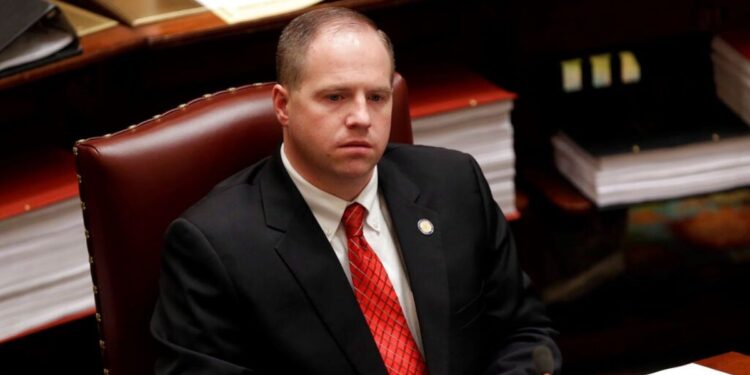New York state Senator Timothy Kennedy, a Democrat, has emerged victorious in the special election to fill the congressional seat left vacant by retired Democratic Representative Brian Higgins. This projection comes from Decision Desk HQ.
In New York’s 26th Congressional district, Kennedy emerged victorious over Republican candidate Gary Dickson, securing the seat that was anticipated to remain in Democratic control. Despite this, the race garnered attention due to the Republican party’s precarious majority.
Local party officials selected both candidates to represent their respective parties in the special election. Kennedy has been chosen to complete the remaining term of Higgins.
In February of this year, Higgins made the decision to resign from Congress after serving nearly twenty years in the House. He expressed his reasons for stepping down, which included the increasing dysfunction and the slow and frustrating pace of progress in Washington, D.C. Currently, he holds the position of president and CEO at Shea’s Performing Arts Center in Buffalo. Alongside other members of the House, Higgins announced that he would not be seeking re-election due to the mounting frustration with the chaos experienced on Capitol Hill.
The New York district encompasses the cities of Buffalo and Niagara Falls, stretching along the scenic Niagara River. It was a tragic incident of mass shooting in Buffalo in 2022 that compelled Kennedy to become a staunch advocate for gun safety legislation in the New York state Senate.
In West Seneca, Dickson made history by becoming the first Republican to be elected as a town supervisor in decades.
Kennedy will complete the remainder of the year representing Higgins’s seat. However, he is also listed on the November ballot as a Democrat, running for a full term in the House, as confirmed by the New York State Board of Elections.
The election coincides with the ongoing trial of former President Trump in Manhattan. Trump, who is expected to be the Republican presidential nominee, is currently facing trial on multiple criminal charges. The first of these charges involves the alleged falsification of business records related to a hush money payment made during the 2016 election cycle.










